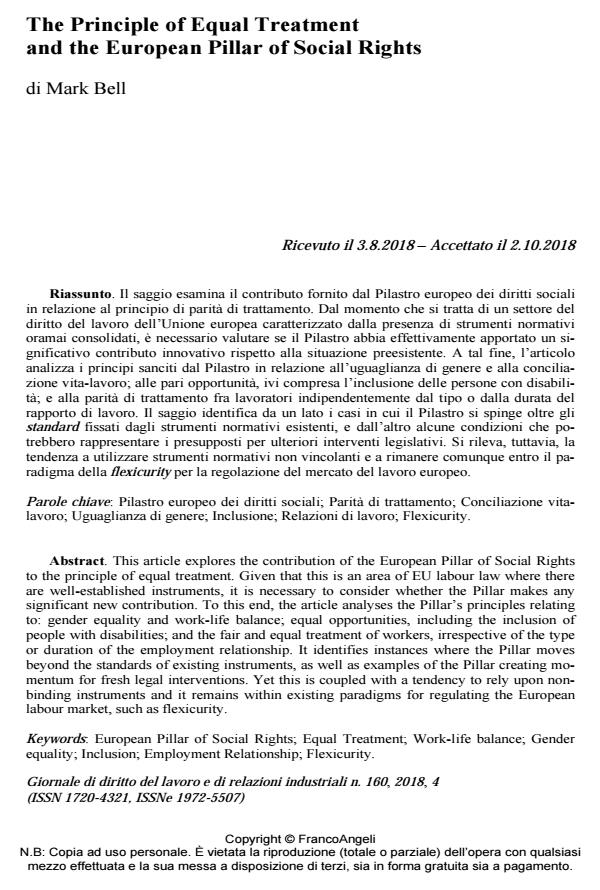The Principle of Equal Treatment and the European Pillar of Social Rights
Journal title GIORNALE DI DIRITTO DEL LAVORO E DI RELAZIONI INDUSTRIALI
Author/s Mark Bell
Publishing Year 2019 Issue 2018/160
Language English Pages 28 P. 783-810 File size 303 KB
DOI 10.3280/GDL2018-160005
DOI is like a bar code for intellectual property: to have more infomation
click here
Below, you can see the article first page
If you want to buy this article in PDF format, you can do it, following the instructions to buy download credits

FrancoAngeli is member of Publishers International Linking Association, Inc (PILA), a not-for-profit association which run the CrossRef service enabling links to and from online scholarly content.
This article explores the contribution of the European Pillar of Social Rights to the principle of equal treatment. Given that this is an area of EU labour law where there are well-established instruments, it is necessary to consider whether the Pillar makes any significant new contribution. To this end, the article analyses the Pillar’s principles relating to: gender equality and work-life balance; equal opportunities, including the inclusion of people with disabilities; and the fair and equal treatment of workers, irrespective of the type or duration of the employment relationship. It identifies instances where the Pillar moves beyond the standards of existing instruments, as well as examples of the Pillar creating momentum for fresh legal interventions. Yet this is coupled with a tendency to rely upon non-binding instruments and it remains within existing paradigms for regulating the European labour market, such as fle-xicurity.
Keywords: European Pillar of Social Rights; Equal Treatment; Work-life balance; Gender equality; Inclusion; Employment Relationship; Flexicurity
- Equal access denied: financial exclusion and the call for inclusive consumer financial regulation in Lithuania Asta Zokaityte, in Journal of Baltic Studies /2026 pp.1
DOI: 10.1080/01629778.2026.2630325 - A New Gender Equality Contract for Europe Eugenia Caracciolo di Torella, pp.65 (ISBN:978-3-031-59992-7)
Mark Bell, The Principle of Equal Treatment and the European Pillar of Social Rights in "GIORNALE DI DIRITTO DEL LAVORO E DI RELAZIONI INDUSTRIALI " 160/2018, pp 783-810, DOI: 10.3280/GDL2018-160005